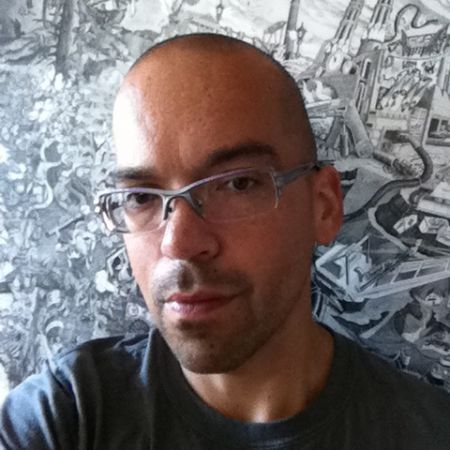(K'JIPUKTUK) HALIFAX - The Radical Imagination, a new book by Haligonians Max Haiven and Alex Khasnabish, looks at the state of radical political activism in North America.
However, there is a Nova Scotia angle. Over the past four years, Haiven and Khasnabish have hosted numerous workshops and interviews with groups of self-described radical political activists here in Halifax, which has shaped the book's conclusions.
The book asks many difficult questions, questions without easy answers. About activists' burn out, sectarianism, the (under-appreciated) role of community in an activist's life.
And some questions that are just plain uncomfortable.
"During one of our workshops we had this incredibly powerful articulation by this one activist about her experience of being subject to this horrible sexual violence by a comrade in her movement," Khasnabish tells the Halifax Media Co-op.
"Not only was she in her story illustrating that [the abuse] was not taken as a central issue for the social justice stuggle in her movement at the time that she lived it, but in in the minutes that followed this powerful testimony the primarily young, male and white activists who were there quickly changed the subject back to a higher level of abstraction."
Khasnabish remembers this as a telling moment.
Well-intentioned collectives often unwittingly reproduce the same kinds of toxic patriarchal and privileged perspective that they are struggling against, he argues.
Inclusiveness within organizations working for radical change is another issue that is often not really thought through, Khasnabish thinks.
"You can be a male who identifies as a feminist or an ally of feminists and still in all kinds of problematic ways reproduce patriarchy," he explained. "Learned behaviour is deeply internalized and so easily reproduced. [To resist that] is hard work."
"Many groups, with the best of intentions, have sought to be more inclusive, to reach out, to make space, and that's a good thing," says Khasnabish.
"But if inclusivity simply means adding people in a tokenistic way so that these people can be present for decisions that have already been taken than that is not really changing anything."
"We are marginalizing people who in their own lives might be much closer to the cutting edges of the system, much more objectively exploited, and who may have a grounded sense of how they want to change the world."
It's not that Khasnabish think that activists are just a bunch of hypocrites. Far from it. Some of the reasons why such behaviours continue are deeply entrenched and very difficult to pin down.
Thinking about success and failure in the context of radical activism may well provide some pointers, the book suggests.
Too often activists unwittingly adopt measures of success that reflect the dominant ideologies of our times.
In an episode that Khasnabish believes is telling, self-described activists were invited to talk about what it means to win.
"What always followed was this sort of pregnant pause, and to a person people responded with a kind of cynicism, a sense of futility," Khasnabish relates.
"But what does it really mean to win," Khasnabish asks. "Perhaps we are creating standards of victory that are not achievable and actually doing damage to our movements and the activists within them by setting up artificial notions of what constitutes success."
The kind of success that has more to do with capitalist dog-eat-dog competitiveness.
Think about sectarianism, Khasnabish argues.
"That desire to constantly demonstrate one's superiority, that can be a type of success, an imagination of success in the sense that nobody is more radical than us, that we alone know the truth," Khasnabish says.
"We believe that this is actually a form of capitalist ideology, you demonstrate success of your brand by deligitimizing other brands. It is also very masculine, very agressive, often very boisterous, it silences other voices."
There are other ways to think about success.
"Movements often have their most significant effect outside of their own time. They leave traces behind," Khasnabish says. "Political activism contributes to a legacy of struggle that informs the way the world changes in non-linear ways. But it does so in ways that are hard to read at the time."
His book is, in many ways, a plea for time. An invitation to step away from the immediate struggles and take the time to look inward. As much time as is necessary.
"If our movements replicate the worst aspects that we find in our society we will never find ourselves breaking free from the gravitational pull of those systems that now orient so much of our lives" Khasabish says.
"We need to really make the time to have these diffcult conversations on how we may not do this anymore."
This Friday and Saturday the Halifax Radical Imagination Project is hosting discussions on the topics raised in this story, and the many other ideas contained in the book The Radical Imagination, by Dr. Max Haiven and Dr. Alex Khasnabish.
Follow Robert Devet on Twitter @DevetRobert



